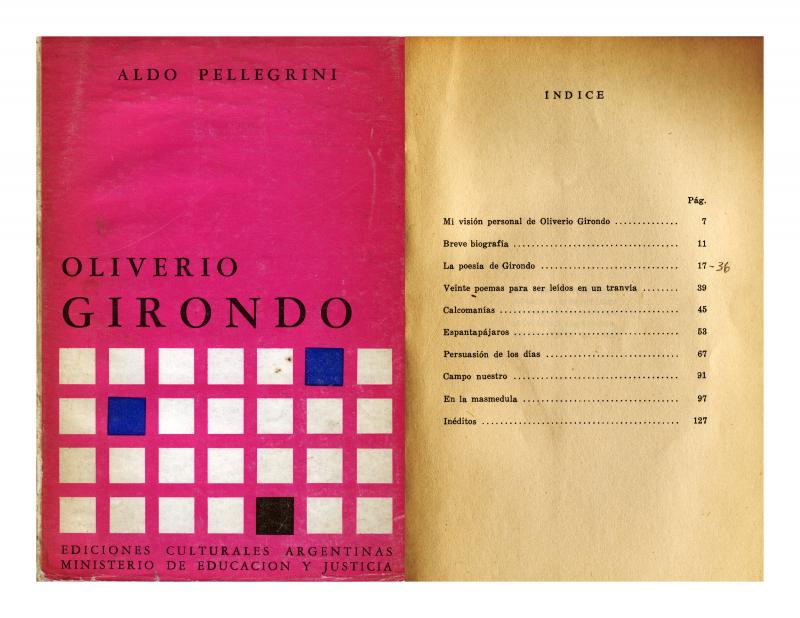Aldo Pellegrini (Rosario 1903–Buenos Aires 1973) was a distinguished poet, playwright, essayist, and art critic within Argentinean cultural circles. From the beginning, he was linked to the development of Surrealism, and he also directed various publishing projects. Pelligrini also supported and publicized various aspects of Abstract art, promoting some groups such as Artistas Modernos de la Argentina [Modern Artists of Argentina] and Asociación Arte Nuevo [New Art Association]. Letra y Línea. Revista de cultura contemporánea. Artes plásticas. Literatura. Teatro. Cine. Música. Crítica [Letter and Line. A Contemporary Culture Magazine. Visual Arts. Literature. Drama. Film. Music. Criticism] was a contemporary culture publication directed by Pellegrini; its four issues appeared between October 1953 and July 1954. Its collaborators included writers, musicians and poets such asEdgar Bayley (1919–1990), Osvaldo Svanascini (1920), Oliverio Girondo (1890–1967), Mario Trejo (1926), Enrique Molina (1910–1997), Juan Carlos Paz (1897–1972), and Norah Lange (1906–1972), among others.Oliverio Girondo was an Argentinean poet who was married to fellow poet Norah Lange. He was linked to the writers of Martín Fierro magazine, including Jorge Luis Borges (1899-1986), Raúl González Tuñón (1905.74), Macedonio Fernández (1874-1952), Ricardo Güiraldes (1886-1926) and Leopoldo Marechal (1900-70), among many others. In the 1930s Girondo was intensely active in public literary circles. Later, due to the experimental nature of the poems published in his book En la masmédula [In the Very Marrow], he wielded significant influence over the generation of poets associated with Pellegrini and Letra y Línea magazine.The article “New Poems by Oliverio Girondo” was accompanied by the following selection: “El nonones pleno” [“The Fully Odd”], “Noche totem” [“Totem Night”], “Islas sólo de sangre” [“Islands of Mere Blood”], “Canes más que finales” [“Dogs More Than Terminal”], and “Aunque el sabor no cambie” [“Although the Taste Does Not Change”].This source was selected because it documents Pellegrini’s closeness to the aesthetic ideas of Girondo, whom he met in 1948. Pellegrini attended evening meetings held at the poet’s house. This document is associated with document no. 745263.

